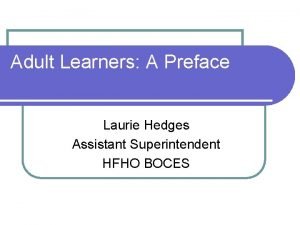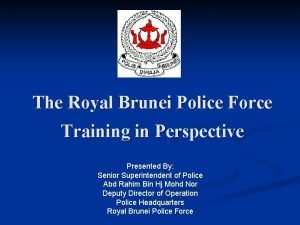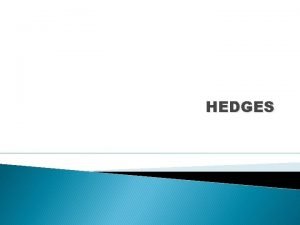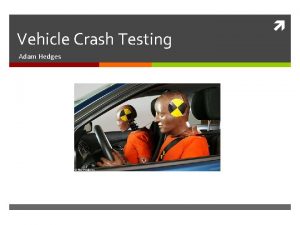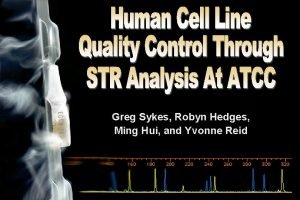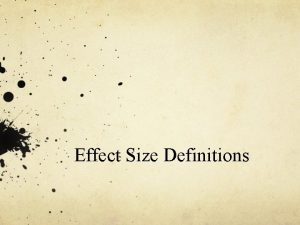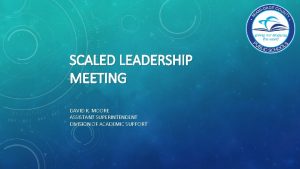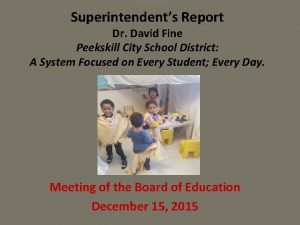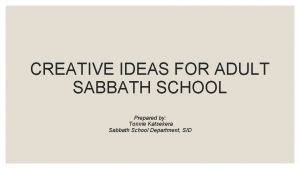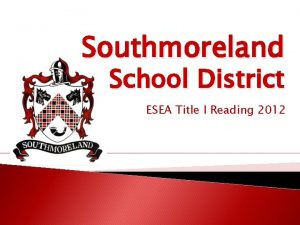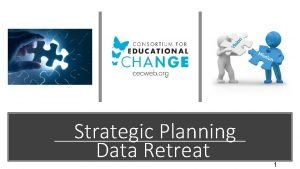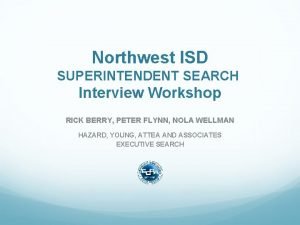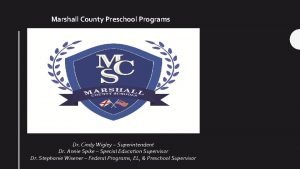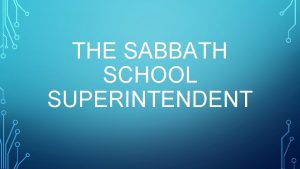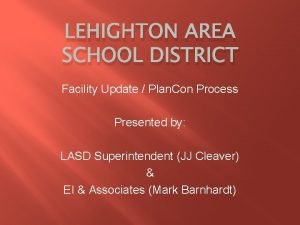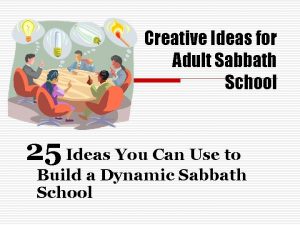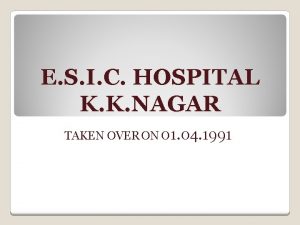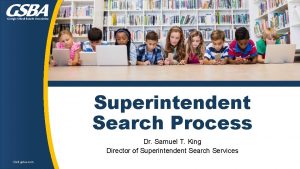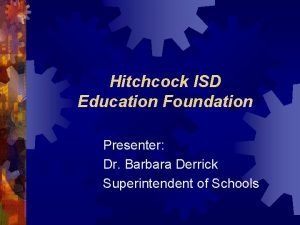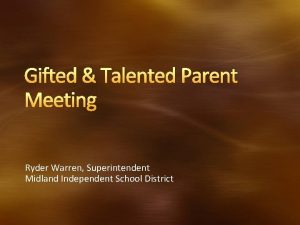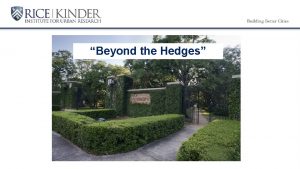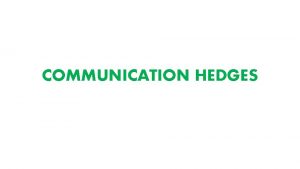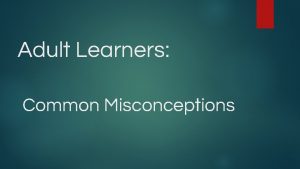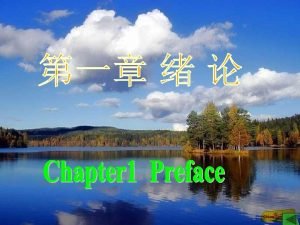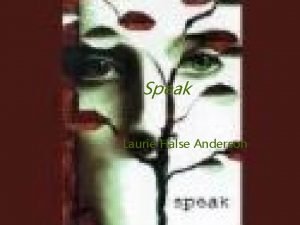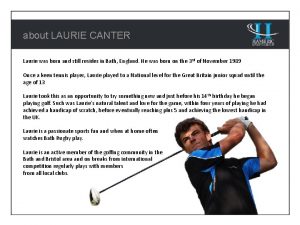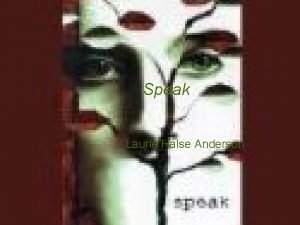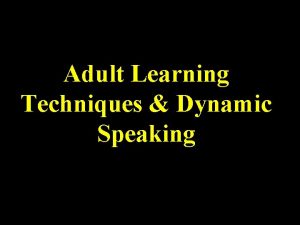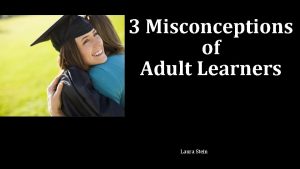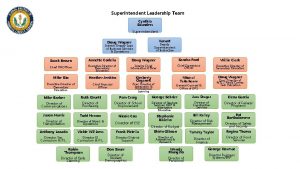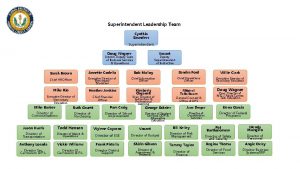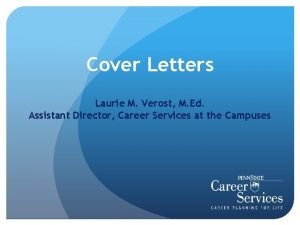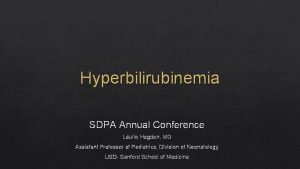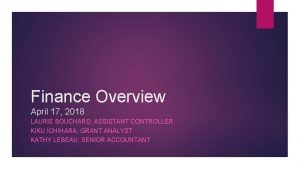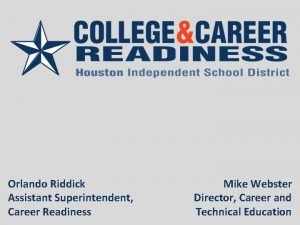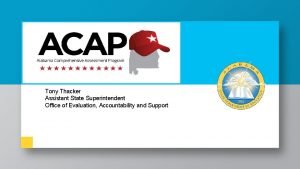Adult Learners A Preface Laurie Hedges Assistant Superintendent






















- Slides: 22

Adult Learners: A Preface Laurie Hedges Assistant Superintendent HFHO BOCES

Essential Question: How might we promote EFFICACY amongst our adult learners?

Conscious Competence Model l. Unconsciously Incompetent l. Consciously Competent l. Unconsciously Competent Martin Broadwell

Adult Learners ANDRAGOGY: The study of how adults learn

Assumptions of Adult Learners l Self-Concept l Adult Learner Experience l Readiness to Learn l Orientation to Learning l Motivation to Learn Knowles, 1984

Four Principles of Andragogy l Involvement in planning and evaluation l Prior experiences, including mistakes l Relevant to work or personal life l Problem centered rather than contentoriented Knowles, 1984

Ask yourself… How might we design effective professional development opportunities that promote efficacy for our constituents?

You are an Architect of Learning

The Instructional Core Student/ Learner TASK Teacher/ Facilitator City, Elmore, Fiarman, Teitel Content 2009

The NSDC Standards l. Content l. Process l. Context

The Ten NYS Standards for High Quality Professional Development l Designing Professional Development l Content Knowledge and Quality Teaching l Research-based Professional Learning l Collaboration l Diverse Learning

The Ten NYS Standards for High Quality Professional Development l Student Learning Environments l Parent, Family and Community Engagement l Data-driven Professional Practice l Technology l Evaluation

Process: The Four Hats l. Facilitating l. Presenting l. Coaching l. Consulting The Adaptive School: Garmston and Wellman

Contexts: Understanding Global, State, Community Realities Conditions of learning and teaching for students and adults Culture of classrooms, schools, districts Competencies of adults Arenas of Change; Lahey

What Works in Professional Development? l Independently, please read pages 495 – 497 of the Guskey and Yoon article. l Annotate and take notes. l Choose a quote that interests you. Guskey & Yoon, 2009

Last Word Protocol l l Each participant silently identifies what s/he considers to be the most significant quote the article. A volunteer member reads his or her quote out loud to the group. The first person says nothing about why s/he chose that particular point. The other participants each have 1 minute to respond to that idea. The first participant then has 2 minutes to state why s/he chose that point and to respond to his/her colleagues based on what s/he heard. The same pattern is followed until all four members of the group have had a chance to have “the last word. ”

Evaluating Professional Development l Level 1: Participants’ Reactions l Level 2: Participants’ Learning l Level 3: Organization Support and Change l Level 4: Participants’ Use of New Knowledge and Skills l Level 5: Student Learning Outcomes Guskey, 2000

Effective Professional Development l Determine impact on student learning outcomes. l Implement new practices. l Gain organizational support and change. l Develop essential knowledge and skills. l Plan target professional learning experiences. Guskey, 2017

Goal Setting Based on your most salient learnings of the day, set a learning goal(s) for yourself.

Questions? Next Steps?

Resources l l l Adult Learning Theory: Knowles, 1984 Arenas of Change: Lahey, Kegan, 2005 Emotional Literacy: Rob Bocchino, 1999 Enhancing Professional Practice: Danielson, 2007 Evaluating Professional Development: Guskey, 2000 Generations at Work: Zemke, Raines, 2000 How the Brain Learns: Sousa, 2011 How to Make Presentations that Teach and Transform: Garmston and Wellman, 1992 Instructional Rounds: City, Elmore et al, 2009 National Staff Development Council Standards: Learning Forward, 2011 The Adaptive School: Garmston, 2013

Additional Resources l http: //theadaptiveschool. weebly. com/4 - hats-of-shared-leadership. html l http: //www. businessballs. com/conscious competencelearningmodel. htm
 Laurie hedges
Laurie hedges Cadet assistant superintendent of police brunei
Cadet assistant superintendent of police brunei Compound hedges
Compound hedges Adam hedges
Adam hedges Electropharogram
Electropharogram Effect size hedges g
Effect size hedges g David moore superintendent
David moore superintendent David fine superintendent
David fine superintendent District 9 superintendent bronx
District 9 superintendent bronx How to make sabbath school interesting
How to make sabbath school interesting Southmoreland primary center
Southmoreland primary center Cardinal local schools superintendent
Cardinal local schools superintendent Scott wakeley superintendent
Scott wakeley superintendent Northwest isd superintendent search
Northwest isd superintendent search Cindy wigley marshall county
Cindy wigley marshall county Sabbath school superintendent
Sabbath school superintendent Proact search
Proact search Lehighton area school district
Lehighton area school district Sabbath school theme ideas
Sabbath school theme ideas Kk nagar esi hospital facilities
Kk nagar esi hospital facilities Gsba superintendent search
Gsba superintendent search Barbara derrick
Barbara derrick Ryder warren
Ryder warren
